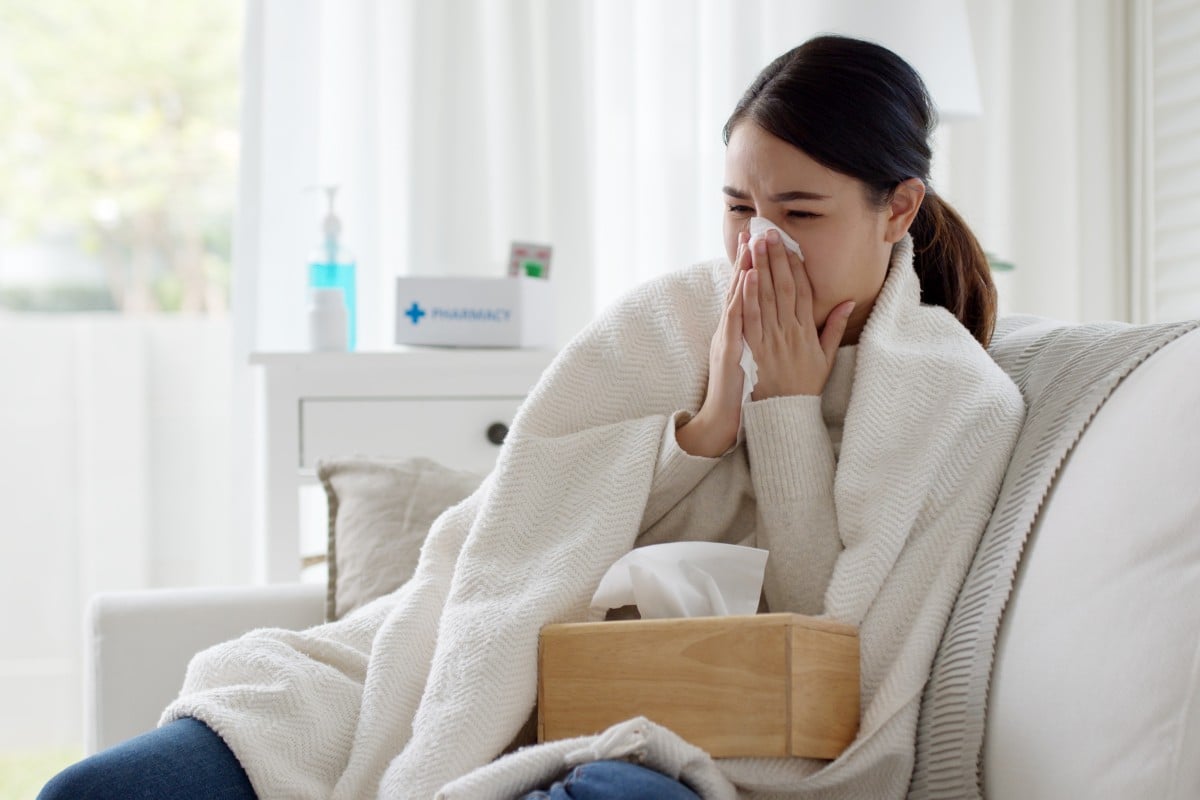 Hong Kong sees a Covid-19 surge, with cases at a yearly high. Photo: Shutterstock
Hong Kong sees a Covid-19 surge, with cases at a yearly high. Photo: Shutterstock A key indicator of Covid-19 levels in Hong Kong has reached its highest rate in a year over the past four weeks, with 30 deaths recorded. However, an expert has noted that the overall impact of the virus has become milder.
The Centre for Health Protection said on Thursday the proportion of respiratory samples testing positive had increased to 13.7 per cent from 6.2 per cent four weeks prior in early April, marking a new high in a year.
Positive samples from sewage tests and patients at clinics and public hospitals were also increasing.
“With reference to the past data, we expected Covid activities will maintain at a relatively high level at least in the next few weeks,” centre controller Edwin Tsui Lok-kin said.
Thirty deaths were recorded over the past four weeks among 81 severe adult cases.
The centre’s epidemiological investigation found that 83 per cent of the severe cases involved patients aged 65 or older, with more than 90 per cent having pre-existing health conditions.
However, only one had received a booster jab within the last six months.
Should Hong Kong schools teach students about the Covid-19 pandemic?
“According to the centre’s estimation, among the elderly aged 65 or above, 75 per cent of those living in elderly homes and 90 per cent of those living in the community have yet to receive a booster. I again appealed to the high-risk residents (both elderly and those with chronic diseases) to get a jab as early as possible,” Tsui said.
Professor Lau Yu-lung, chairman of the government’s Scientific Committee on Vaccine Preventable Diseases and a paediatrics professor at the University of Hong Kong, said that while recent data indicated a clear upwards trend in Covid-19 cases, the consequences for individuals and society appeared less severe than in 2023 and 2024.
“The sewage monitoring system for the eighteenth week [of the year] showed nearly 700,000 gene copies per litre,” he told a radio show, referencing data from the Centre for Health Protection’s sewage surveillance system.
“Looking back at March 2024, the highest peak was around 400,000. This objective data, which isn’t reliant on testing rates, suggests that community transmission is indeed higher now than the peak in 2024.”
But Lau stressed that the number of severe cases and deaths had not followed the same increasing trajectory.’
“If we look at the serious cases and compare them, the figures for 2025 are lower than the previous year,” he said.
Lau attributed the year-on-year decline in severe and fatal cases to the evolving nature of coronaviruses and the body’s adaptive immune response.
“It’s almost impossible to stop the spread of Covid-19. Individuals will likely experience second, third or even fourth infections … but subsequent infections tend to be milder. By the fourth infection, many might be asymptomatic,” he said.
Lau said that while antibody levels waned after about three to six months, the body’s memory cells, particularly T-cells, provided longer-lasting protection.
Each subsequent infection served to “educate” these T-cells, enhancing their ability to defend against newer variants, which were still largely descendants of the Omicron variant, he explained.
“The most crucial message is for the most vulnerable – those with underlying conditions or the elderly – to get vaccinated to boost their antibody levels and potentially prevent severe outcomes,” he said.
And while most people were fine to go maskless, high-risk individuals should consider wearing them, he added.
